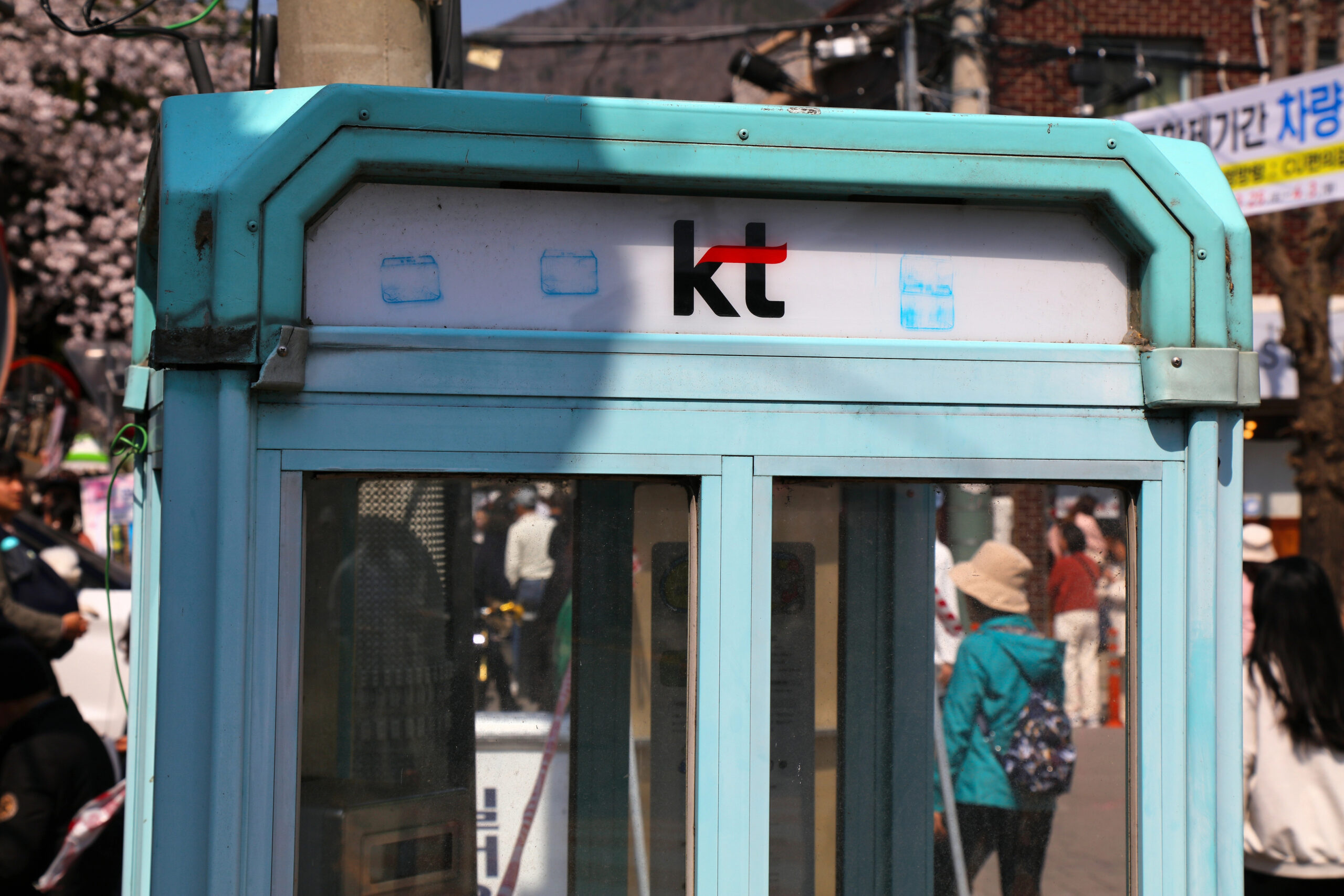As you delve into the world of telecommunications, you’ll find that even industry giants are not immune to regulatory scrutiny. In a recent development that has sent shockwaves through South Korea’s telecom sector, the country’s leading providers have been hit with substantial fines for engaging in anti-competitive practices through a subscriber collusion scheme. The Korea Fair Trade Commission (KFTC) has imposed penalties totaling $78.5 million on these telecom titans for colluding to retain subscribers and impede market competition. This article will explore the details of this landmark decision, its implications for the industry, and what it means for consumers in South Korea’s highly connected society.
Telecom Giants Fined for Anticompetitive Practices

South Korea’s telecommunications industry has been rocked by a recent scandal involving some of its biggest players. The country’s antitrust watchdog, the Korea Fair Trade Commission (KFTC), has imposed hefty fines totaling $78.5 million on three major telecom companies for engaging in anticompetitive practices.
The Collusion Scheme
The KFTC’s investigation revealed a complex web of collusion among SK Telecom, KT Corp, and LG Uplus. These industry titans were found to have secretly agreed to limit subscriber transfers between their networks. This practice effectively stifled competition and restricted consumer choice in the mobile service market.
Impact on Consumers
By artificially manipulating the market, these companies denied South Korean consumers the benefits of a truly competitive telecom landscape. This collusion likely resulted in:
Higher prices for mobile services
Reduced incentives for companies to innovate
Limited options for consumers seeking better deals or improved service quality
Regulatory Response and Future Implications
The substantial fines imposed by the KFTC send a clear message about the seriousness of these violations. This regulatory action aims to:
Punish the offending companies
Deter future anticompetitive behavior
Restore fair competition to the telecom market
As South Korea continues to be a global leader in telecommunications technology, maintaining a competitive and transparent market is crucial for fostering innovation and ensuring consumer benefits in the digital age.
Subscriber Collusion: The Allegations Against South Korea’s Telecom Titans
The Nature of the Accusations
South Korea’s telecommunications landscape has been rocked by serious allegations of subscriber collusion against its major players. The country’s antitrust watchdog, the Korea Fair Trade Commission (KFTC), has accused these telecom giants of engaging in anti-competitive practices that manipulated the mobile phone market. At the heart of the matter is the claim that these companies collaborated to inflate subscription numbers and market share data, creating a distorted picture of the industry’s competitive dynamics.
Impact on the Market and Consumers
This alleged collusion has far-reaching implications for both the telecom market and consumers. By potentially misrepresenting subscriber figures, these companies may have influenced investment decisions, regulatory policies, and consumer perceptions. The artificial inflation of subscriber numbers could have led to:
Skewed market analysis and forecasts
Misallocation of resources within the industry
Potentially higher prices for consumers due to perceived demand
Undermined trust in the telecom sector’s reporting and transparency
Regulatory Response and Industry Repercussions
The KFTC’s decision to impose a substantial fine of $78.5 million underscores the severity of these allegations. This punitive action serves as a stark warning to the industry about the consequences of anti-competitive behavior. As the case unfolds, it may trigger broader scrutiny of telecom practices, potentially leading to stricter oversight and reporting requirements for subscriber data across the sector.
Impact on the South Korean Telecom Landscape
The $78.5 million fine levied against South Korea’s telecom giants for subscriber collusion has sent shockwaves through the industry, reshaping the competitive landscape and consumer dynamics. This unprecedented penalty highlights the government’s commitment to fostering fair competition and protecting consumer interests in one of the world’s most advanced telecommunications markets.
Shifting Market Dynamics
The fine has disrupted the status quo, forcing major players to reassess their strategies. You’ll likely see increased transparency in pricing and service offerings as companies strive to rebuild trust and avoid further scrutiny. This shift may lead to more competitive pricing and innovative service packages, benefiting consumers in the long run.
Consumer Empowerment
With the collusion exposed, you can expect a surge in consumer awareness and activism. Subscribers are now more likely to scrutinize their plans and switch providers if dissatisfied. This heightened consumer vigilance could drive telecom companies to improve customer service and offer more tailored, value-driven solutions to retain their user base.
Regulatory Ripple Effects
The regulatory landscape is poised for transformation in the wake of this ruling. You may witness the introduction of stricter oversight measures and more frequent audits of telecom practices. This increased scrutiny could extend beyond subscriber management to areas like data privacy and network infrastructure, potentially accelerating technological advancements and security enhancements across the industry.
Stricter Regulations and Enforcement: A Wake-Up Call for the Industry
The recent hefty fines imposed on South Korea’s telecom giants serve as a stark reminder of the evolving regulatory landscape in the telecommunications sector. This unprecedented action by authorities signals a new era of heightened scrutiny and enforcement, compelling industry players to reassess their practices and prioritize compliance.
Implications for Market Competition
The crackdown on subscriber collusion underscores the government’s commitment to fostering fair competition and protecting consumer interests. By penalizing anticompetitive behavior, regulators aim to create a more level playing field, potentially opening doors for smaller providers and innovative startups to gain market share.
Transparency and Consumer Trust
This regulatory action highlights the critical importance of transparency in business operations. Telecom companies must now prioritize clear communication with subscribers and regulators alike. Building and maintaining consumer trust will become increasingly vital for long-term success in this new regulatory climate.
Adapting to the New Normal
To thrive in this evolving landscape, telecom companies must:
Invest in robust compliance programs
Conduct regular internal audits
Foster a culture of ethical business practices
By proactively addressing these areas, industry players can mitigate risks and position themselves as responsible corporate citizens in an increasingly scrutinized market.
Lessons Learned: Ensuring Fair Competition in the Telecom Sector
The Importance of Regulatory Oversight
The recent fine imposed on South Korea’s telecom giants serves as a stark reminder of the critical role regulatory bodies play in maintaining fair competition. By penalizing collusive practices, authorities demonstrate their commitment to protecting consumer interests and fostering a healthy market environment. This action underscores the need for continuous vigilance and robust enforcement mechanisms to prevent anti-competitive behaviors that can harm consumers and the industry.
Transparency and Accountability
This incident highlights the importance of transparency in business practices within the telecom sector. Companies must be held accountable for their actions, especially when they impact millions of subscribers. Implementing stringent internal compliance programs and regular audits can help prevent such violations and maintain public trust. Moreover, fostering a culture of ethical business conduct is crucial for long-term success and sustainability in this highly competitive industry.
Promoting Innovation Through Fair Competition
Fair competition is the cornerstone of innovation and progress in the telecom sector. When companies engage in collusive practices, it stifles creativity and hampers the development of new technologies and services. By ensuring a level playing field, regulators can encourage healthy competition that drives companies to innovate, improve service quality, and offer better value to consumers. This ultimately leads to advancements in telecommunications infrastructure and services, benefiting both the industry and society at large.
Key Takeaways
In conclusion, the partnership between Sinar Mas and Korea Investment Real Asset Management marks a significant milestone in Indonesia’s digital infrastructure development. This $300 million investment in a state-of-the-art data center demonstrates the growing importance of robust IT capabilities in the region. As you consider the implications of this project, recognize its potential to drive economic growth, attract foreign investment, and position Jakarta as a key player in the global digital landscape. The successful completion of this facility by 2027 will undoubtedly shape the future of data management and cloud computing in Indonesia, offering new opportunities for businesses and technological innovation in the years to come.
More Stories
OpenAI Cracks Down on State Sponsored Abuse of ChatGPT
OpenAI has taken a decisive step to thwart state-sponsored exploitation of its ChatGPT technology. As detailed in a comprehensive threat intelligence report, OpenAI has disabled numerous accounts implicated in cyber operations orchestrated by state actors from countries including Russia, China, and North Korea.
Record‑Breaking Rupiah Loan Powers AI‑Ready Batam Data Hub
They secured a historic record-breaking Rupiah 6.7 trillion loan from financial giants DBS and UOB. This monumental financing supports an AI-ready data center campus at Batam’s Nongsa Digital Park.
Threads Unveils Native DM Test to Break Instagram Dependency
By unveiling a native DM (direct messaging) feature, Threads aims to sever its dependency on Instagram for private communications, a shift poised to redefine how users interact within the platform.
Google Closes Loophole That Let Hackers Bruteforce Your Hidden Phone Number
Recently, Google took decisive action to close a significant vulnerability that could potentially expose users’ hidden phone numbers to malicious actors.
Instagram Edits Brings In-App Teleprompter to Boost Creator Confidence
Introducing the in-app teleprompter within Instagram Edits, a tool designed to bolster your on-camera confidence and enhance viewer engagement.
Minimal-Data Optimization for Search Agent Training in RAG Systems
In the fast-changing world of RAG systems, training search agents with minimal-data optimization is a key challenge.


